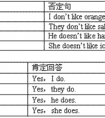根据句意,用括号中所给单词的正确形式填空,每空一词。 1. We prevented them from _____ (kill) the wild animals. 2. There are many _____ (fog) days in London. 3-八年级英语
2、副词修饰形容词,副词时,副词在前面,而被修饰的词在后面。
It's rather easy, I can do it. 这很容易,我能做到。
He did it quite well. 他做得相当好。
It's rather difficult to tell who is right.很难说谁是对的。
It's so important that I must tell my friends. 这件事太重要了,我得告诉我的朋友。
It's much better. 好多了。
3、频度副词可放在实义动词的前面,情态动词和助动词的后面。
I often help him these days. 这些日子我经常帮助他。
I always remember the day when I first came to this school.
我常常记得我第一次来学校的那一天。
You mustn't always help me. 你不能老是帮助我。
He seldom comes to see us. 他很少来看我们。
We usually go shopping once a week. 我们通常一周买一次东西。
The new students don't always go to dance. 新学生并不时常去跳舞。
4、疑问副词,连接副词,关系副词以及修饰整个句子的副词,通常放在句子或从句的前面。
When do you study everyday? 你每天什么时间学习?
Can you tell me how you did it? 你能告诉我你如何做的吗?
First, let me ask you some questions. 先让我来问几个问题。
How much does this bike cost? 这辆车子多少钱?
Either you go or he comes. 不是你去就是他来。
The students were reading when the teacher came into the classroom. 当老师进教室时,学生们正在读书。
5、时间副词和地点副词在一个句中, 地点副词在前面时间副词在后面。
We went shopping in the supermarket at 9 o'clock yesterday.
昨天九点钟我们到超市买东西了.
What were you doing in the classroom yesterday afternoon?
昨天下午你在教室里干什么?
The accident took place in the Eleven Avenue one hour ago.
一小时前十一号大街发生了一场事故。
6、否定副词在句首,句子要倒装,如:
Never have I felt so excited!
1) close与closely
close意思是"近"; closely 意思是"仔细地"
He is sitting close to me.
Watch him closely.
2) late 与lately
late意思是"晚"; lately 意思是"最近"
You have come too late.
What have you been doing lately?
3) deep与deeply
deep意思是"深",表示空间深度;deeply时常表示感情上的深度,"深深地"
He pushed the stick deep into the mud.
Even father was deeply moved by the film.
4) high与highly
high表示空间高度;highly表示程度,相当于much
The plane was flying high.
I think highly of your opinion.
5) wide与widely
wide表示空间宽度;widely意思是"广泛地","在许多地方"
He opened the door wide.
English is widely used in the world.
6) free与freely
free的意思是"免费";freely 的意思是"无限制地"
You can eat free in my restaurant whenever you like.
You may speak freely; say what you like.
副词有加a或ly的 区别在于通常加a 的副词描述一种状态,而加ly 的副词则倾向于感觉。
考点名称:被动语态
- 语态:
是动词的一种形式,它表示主语和谓语的关系。
语态有两种:主动语态和被动语态。
如果主语是动作的执行者,或者是说动作是由主语完成的,要用主动语态;
如果主语是动作的承受者,或者是说动作不是由主语而是由其他人完成的,则用被动语态。 - 被动语态的构成:
被动语态的基本结构:
主语+be +过去分词(+by+动作的发出者)
① 一般现在时:am/is/are+过去分词
如:Trees are planted every year.
② 现在进行时 am/is/are+ being +过去分词
如:The road is being repaired.
③ 现在完成时 have/has + been +过去分词
如:The work has been finished.
④ 一般过去时 was/were + 过去分词
如:The story was told by him.
Many birds were killed last year.
⑤过去进行时 was/were+ being + 过去分词
如: The new house was being painted when I got home.
⑥过去完成时 had +been+ 过去分词
如: He told me that the work had been finished.
⑦一般将来时 will +be + 过去分词
如:The problem will be discussed tomorrow.
⑧ 过去将来时 would/should +be +过去分词
如: He said that the Christmas tree would be put up soon.
⑨情态动词的被动语态
情态动词+ be +过去分词
如:The problem must be solved soon.
Children should be taught to love animals. - 被动语态使用注意:
1. 不及物动词无被动语态。 如:happen, break down, come out......
What will happen in 100 years.
The dinosaurs disappeared about 65 million years ago.
2. 有些动词用主动形式表示被动意义。 如: write, sell, ride.....
This pen writes well.
This new book sells well.
3. 感官动词或使役动词使用省略to的动词不定式,主动语态中不带“to”,但变为被动语态时,须加上“to”。
例:make somebody do something→somebody+ be +made to do something
see somebody do something→somebody +be +seen to do something
A girl saw my wallet drop when she passed by.→My wallet was seen to drop by a girl when she passed by.
The boss made the little boy do heavy work.→The little boy was made to do heavy work by the boss.
4. 如果是接双宾语的动词改为被动语态时,直接宾语(物)作主语,那么动词后要用介词,这个介词是由与其搭配的动词决定。
He gave me a book.→A book was given to me by him.
He showed me a ticket.→A ticket was shown to me by him.
My father bought me a new bike. →A new bike was bought for me by my father.
5. 一些动词短语用于被动语态时,动词短语应当看作一个整体,而不能丢掉其中的介词或副词。
We can’t laugh at him. →He can’t be laughed at by us.
He listens to the radio every day. →The radio is listened to by him every day.
The nurse is taking care of the sick man. →The sick man is being taken care of by the nurse.
构成be+done. - 主动句变为被动句所遵循的4个步骤:
①把原主动句中的宾语变为被动句的主语
②把动词变为被动形式即be +过去分词,并注意其人称和数随主语的变化,而动词的时态则保持不变。
③原主动句的主语如需要则放在by后面以它的宾格形式出现(注代词的宾格),如不需要则可省略。
④其它的成分(定语、状语)不变。
不用于被动语态的情形:
①不及物动词没有被动语态
这类动词有take place, happen, come about, break out, appear, disappear, last, arise等。
例如:A fire broke out during the night.
②某些静态动词不用于被动语态
这类动词有have, lack, fit, hold, suit, resemble等。
例如:My shoes do not fit me.
③宾语为相互代词和反身代词时不用于被动语态
例如:We should help each other.
关于主动形式表示被动意义:
①系动词(如look, sound, smell, feel, taste, prove等)要用主动表被动,因为系动词为不及物动词,它们没有被动语态形式。
例如:The building looks very beautiful.
②当open, close, shut, lock, move, read, wash, clean, cook, cut, wear, carry 等用作不及物动词且表示主语的某种属性时,通常用主动形式表示被动意义。
例如:The book sells well.
③有的动词本身含有被动意味,通常用主动形式来表示被动含义。
例如:Her eyes filled with tears.
④不定式to blame, to let用作表语时,通常要用主动表被动。
例如:Who is to blame?
⑤某些“be+形容词+to do”结构中的不定式通常要用主动形式表示被动意义。
例如:The book is difficult to understand.
⑥不定式用于某些动词(如have, have got, get, want, need等)的宾语后作定语时,如果不定式的逻辑主语就是句子的主语,通常用主动形式表示被动意义。
例如:Do you have time to help us?
⑦在too...to do sth.和...enough to do sth. 这两个结构中,若主语与其后不定式为to do sth.被动关系,则该不定式通常用主动形式表示被动意义(有时也可直接用 被动式)。
例如:The writing is too faint to read.
⑧be worth后的动名词要用主动表被动。
例如:This movie is worth seeing.
⑨在need, want, require等少数表示“需要”的动词后的动名词用主动形式表示被动意义。
例如:The house needs cleaning.
表示“据说”的三类被动句型:
①It is said that...句式
例如:It is said that thirteen is an unlucky number.
②There is said that...句式
- 最新内容
- 相关内容
- 网友推荐
- 图文推荐
上一篇:—Thanks for ___ me join your trip.—You’re welcome.[ ]A. agreeing to let B. agreeing let C. to agree to letD. agreeing letting-八年级英语
下一篇:How about _____ to that song now? [ ]A. listenB. listenningC. listeningD. to listen-八年级英语
零零教育社区:论坛热帖子
| [家长教育] 孩子为什么会和父母感情疏离? (2019-07-14) |
| [教师分享] 给远方姐姐的一封信 (2018-11-07) |
| [教师分享] 伸缩门 (2018-11-07) |
| [教师分享] 回家乡 (2018-11-07) |
| [教师分享] 是风味也是人间 (2018-11-07) |
| [教师分享] 一句格言的启示 (2018-11-07) |
| [教师分享] 无规矩不成方圆 (2018-11-07) |
| [教师分享] 第十届全国教育名家论坛有感(二) (2018-11-07) |
| [教师分享] 贪玩的小狗 (2018-11-07) |
| [教师分享] 未命名文章 (2018-11-07) |

![Which of the following can you probably see in the meeting room? [ ]A. B. C.D. -七年级英语](http://www.00-edu.com/d/file/ks/4/2/dongmingci/2020-01-08/small97361980a56115e1c9237567439904fe1578422951.jpg)

![—Can the boy finish_____ the book in about a week? —I think he can. [ ]A. read B. reading C. to read D. reads -八年级英语](http://www.00-edu.com/d/file/ks/4/2/dongmingci/2020-01-08/smallfa4d713075e249356362fe7392193a301578421751.png)


